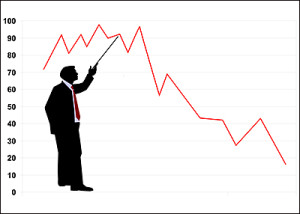Corruption ― An Economist’s View
By Zaid Srour, Marketing –

Economists see beyond the moral to calculate the hard losses associated with corruption in business.
While many view corruption as an important moral issue, as a disease spreading through the world, economists tend to careless about the moral side of corruption and more about its costly side.
Economists believe that corruption decreases efficiency and limits the government’s ability to fight inefficiency.
The Faces of Corruption
Benjamin Olken, an MIT professor of economics, explained in a recent lecture that corruption generally exists in three forms:
1. Graft ― stealing from the government
2. Extortion ― blackmailing individuals to get paid
3. Bribery ― paying someone to look the other way
Incentives and Punishment
Olken also spoke of how corrupt people respond to incentives and punishment. He traveled to Asia to test his theory. In conducting research, he found out that usually when there is monitoring and auditing in a government project, less graft occurs for fear of punishment. However, there are a clear percentage of people who continue to steal in spite of this fear because of the lack of evidence required to convict someone.
Olken says the same issue can be seen with incentives, where incentivized tax collectors collect more revenue with incentives. Unfortunately, auditors can be bribed to fix their books, so the issue is compounded.
Bringing the Shadows to Light
Corruption thrives in secrecy. To eradicate it, there must be a way to unveil and corner those responsible to leave them without a place to hide. This can be potentially done by adopting a method that clears the names of innocent people and gives people a warning when someone is considering fraudulent or deceptive behavior.
EyeDetect™ has the ability to do both. It is a new technology that examines pupil dilation during a computer-based interview. An individual must sit for 30-40 minutes in front of a computer monitor and answer true/false questions. After the test, results are calculated and reports are created for authorized parties regarding the credibility of the individual questioned.

